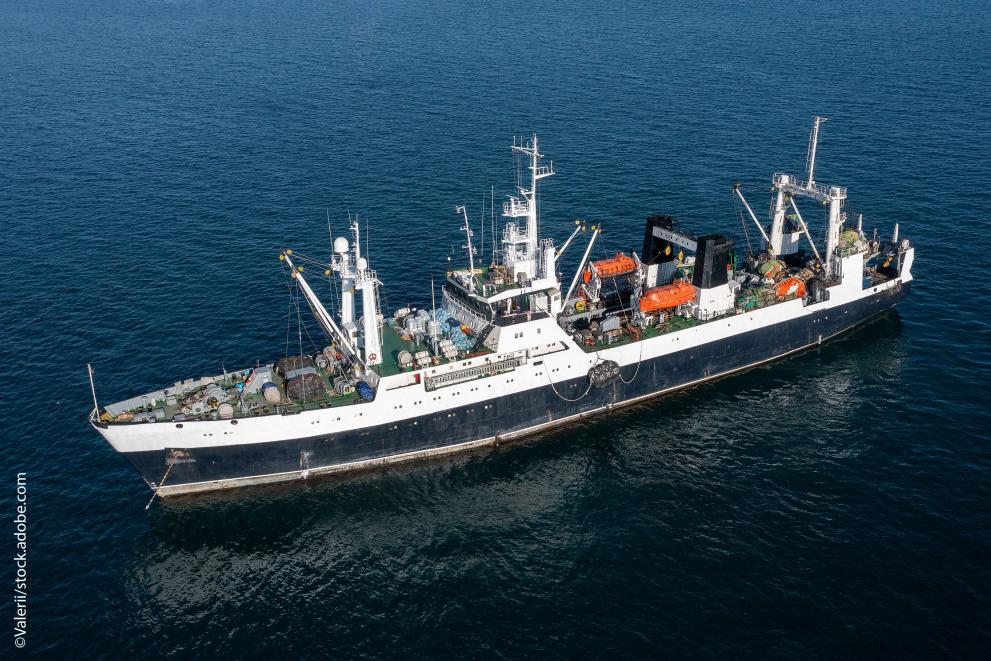
The EU was granted fishing opportunities for chub mackerel at the North Pacific Fisheries Commission (NPFC) annual session, held from 15 to 18 April 2024 in Osaka, Japan. Chub mackerel is an important commercial species and EU fishing fleet will be allowed to participate in this NPFC fishery.
This is the second year that the EU takes part as a full member to the NPFC, and the adoption of fishing opportunities for a key NPFC fish stock finally gives full effect to the EU participation, while opening a new fishing zone for its fleet.
Welcoming this positive development, Virginius Sinkevičius, Commissioner for Environment, Oceans and Fisheries said:
“This agreement in the North Pacific Fisheries Commission means the EU will become a fishing player in the North Pacific. With those new fishing rights, for the EU also comes a renewed responsibility to continue promoting sustainability of fisheries at international level.”
The North Pacific Fisheries Commission is a regional fisheries management organisation (RFMO) established to ensure the long-term conservation and sustainable use of the fisheries resources in the ocean areas covered by the NPFC, while protecting the marine ecosystems of the North Pacific Ocean.
Background
On 23 March 2022, the EU became member of the North Pacific Fisheries Commission (NPFC), a regional fisheries management organisation (RFMO).
The North Pacific Fisheries Commission was established by the 2012 Convention on the Conservation and Management of High Seas Fisheries Resources in the North Pacific Ocean, and entered into force in 2015.
Through its participation in the NPFC, the EU promotes the sustainable management of the marine biological resources as well as the protection of vulnerable marine ecosystems and species, in line with the objectives of the European Green Deal and of the common fisheries policy.
The EU also contributes to strengthening the governance and existing legal framework of the NPFC, promoting better science and supporting effective compliance and enforcement of applicable rules.
The fisheries resources covered by the NPFC include all fish, molluscs, crustaceans and other marine species excluding some fish stocks, as tuna and tuna-like species or so-called sedentary species. This includes small pelagic species, such as the chub mackerel, Pacific saury, sablefish, Japanese sardine, as well as, neon flying squid, Japanese flying squid and some deep sea species.
The current Members of NPFC are Canada, China, the European Union, Japan, the Republic of Korea, the Russian Federation, Chinese Taipei, the United States of America and Vanuatu.
Regional fisheries management organisations (RFMOs) are organisations set up by countries sharing fishing interests in a given geographical area. The organisations are open to both countries in the region (‘coastal states’) and countries that have interests in those fisheries (‘distant water fishing nations’). While some RFMOs have a purely advisory role, most have management powers to set catch and fishing effort limits, technical measures, and control obligations. Today, RFMOs cover the majority of the world’s seas.
The EU, represented by the Commission, plays an active global role in 18 RFMOs. This makes the EU one of the most prominent actors in RFMOs worldwide, enabling it to promote international ocean governance and the sustainability of fisheries at international level.
More information
North Pacific Fisheries Commission
Details
- Publication date
- 19 April 2024
- Author
- Directorate-General for Maritime Affairs and Fisheries
